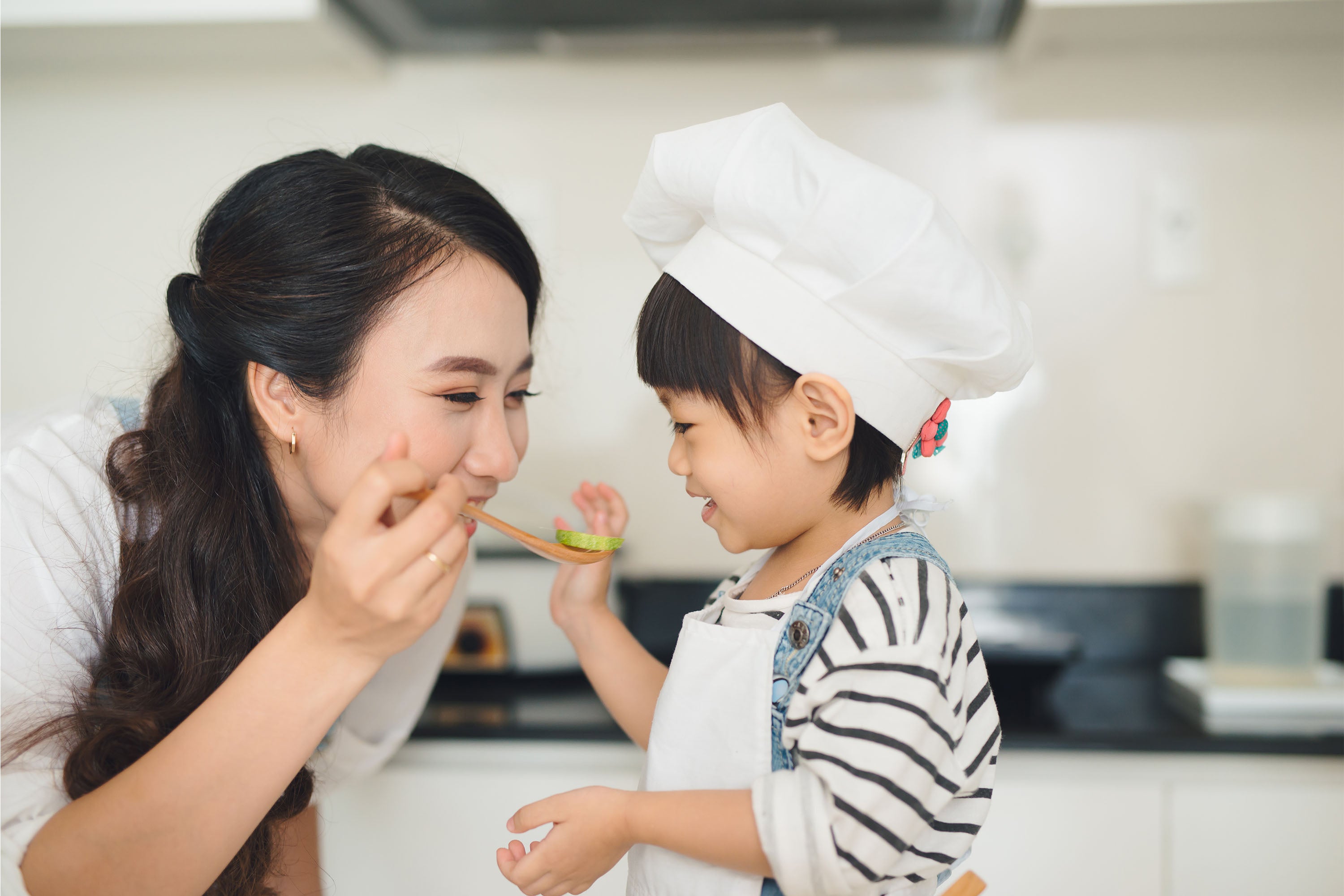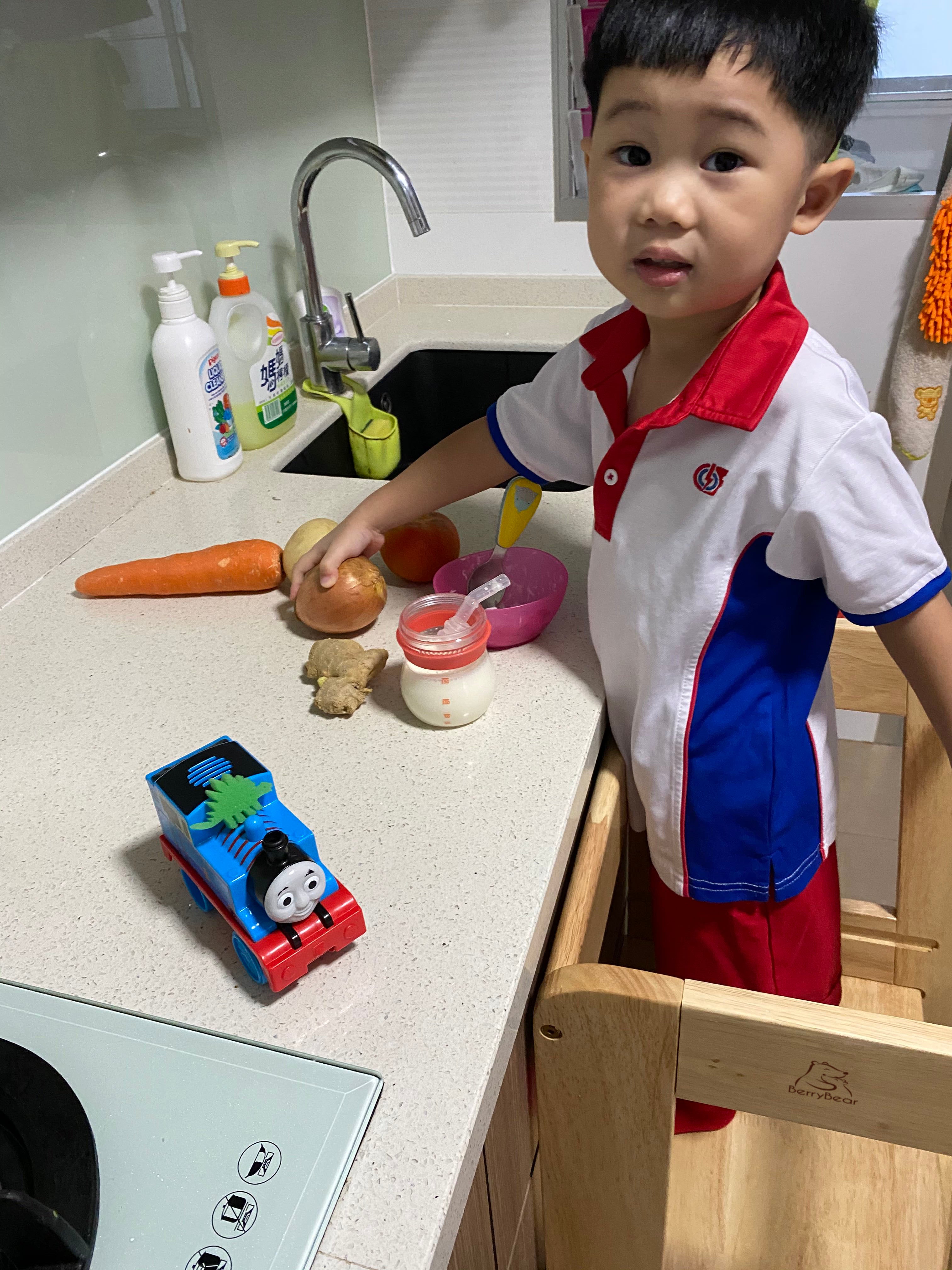How does a learning tower benefit a child?
Our young ones often have a hard time accepting that they are not old enough to do certain tasks. From their little perspective of the world, everything feels magical and new. They are curious about what the grown-ups are doing on the kitchen countertop and they want to be involved by your side. It's hard being a tiny figure in a big daunting world but thanks to the invention of learning towers, your little one can now participate in activities that may have previously been out of reach.

Reasons why you need a learning tower
1. Cooking is now easier!
When my son was one year old, it was a struggle to cook. I would have to prep my meal either with the boy crying at my feet or just resign to fate and be a one-handed chef. I needed a solution which allows me to enjoy quality time with my son and still ensures my family can enjoy home-cooked food. The learning tower gave me an opportunity to keep my son engaged during meal preps and washing up.
2. Hand washing made easy!
Before we had a learning tower, trying to wash my son’s hands at the kitchen sink was a challenge. I would try to stand on one leg, prop the kid up on the other knee, support him with one arm and try to quickly wash his hands. With the learning tower, my son is at the perfect height for me to help with his hand washing. I can now even demonstrate proper hand washing techniques to them.
3. Learning about responsibilities
Spills and messes are expected when you involve your little one in the kitchen. Instead of getting upset, use this as a learning opportunity to show them the right way to clean up. Show them where the broom or rags are kept or the right process to dispose of food scraps. They’ll soon be able to do this on their own!
4. Spending quality time with your little ones
Baking and cooking is a great way to strengthen the relationship between parents and child. While it might be tempting to save time by doing everything yourself, we believe you will enjoy the extra time spent with your child in the kitchen. Treasure this precious phase of their lives!
5. You don’t need fancy toys to train their fine motor skills
The kitchen offers many opportunities for learning. Children can work on their mental and emotional development by building confidence as they fill, scoop and pour on the countertop. These skills will come in useful in the future as they embark on the next phase of their lives in childcare / schools.
6. Fussy Eater?
Without a doubt, mealtimes are a battlegrounds for parents and children. Some children are just so fidgety that they don’t want to sit down to eat. To reduce stress for myself, I sometimes allow my kids to have their breakfast while standing on the learning tower in the kitchen and watching me prep their lunch.
Getting them involved in daily meal preps is also a great way to encourage our little ones to try new food. They will take pride in what they’ve helped prepare and is more likely to eat whatever they’ve helped to make. While preparing, talk to them about what they’re making and use interesting stories to keep things light-hearted.
7. Encourage Communications
The communication needed to work through a recipe will improve linguistic skills and their confidence in stating intent, expressing disagreement and asking questions. What is this? Can I touch? How are you cooking the fish? Why do we need to add this into that? Kids’ curiosity is an amazing thing and we should encourage it.
8. They learn more while on the tower
Being in the kitchen, your child is exposed to multiple sensory experiences – the fragrance of bread when it bakes, the colour of stew when it simmers, and the sound of bacon when it fries. Talk to them about the different smells, colours and texture of different ingredients and let them explore.
To help our children practise math, you could assign simple tasks such as counting fruits or measuring ingredients such as flour or sugar. Reading recipes with them is also a great way to boost comprehension skills and understanding of different processes such as mixing, marinating and kneading.


9. Craft containment
Some crafts or sensory play activities are just better done on countertops, especially those involving water, flour or paint. It makes cleaning easier as you can sweep all the dirt right into your sink or bin and give your kids a quick washing up before letting them leave the kitchen. Using the learning tower also keeps your littles ones away from distractions and help them focus on the activity.
10. Younger siblings being a terror?
Trying to let your older child enjoy an activity but your younger child is being disruptive? The height boost provided by the learning tower will keep away little siblings and help your older kids stay focused on their activities.
Find out more on tips for cooking with kids here
